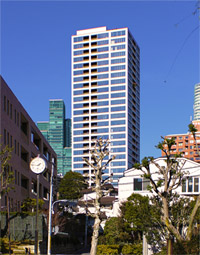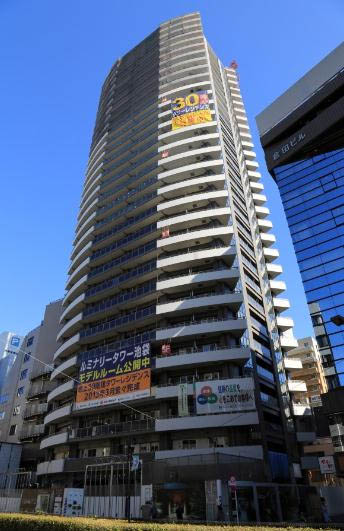Foreigners buy 174 ha of forestry in 2014, down 10% from 2013
According to the Forestry Agency, there were 13 cases of foreign funds acquiring a total of 174 hectares of forestry across Japan in 2014. The buyers, which were private individuals and corporations, were primarily from the British Virgin Islands, Hong Kong and Singapore, and the reasons for purchase were either asset holding or development.
Buyers from Hong Kong accounted for just 8% of the land acquired by foreigners, while buyers registered in the British Virgin Islands accounted for 78% of the land acquired.
Hokkaido is the main destination of foreign funds
Over 99% of the forestry was located in Hokkaido. Buyers from the British Virgin Islands acquired 135 hectares of forestry in Hokkaido’s Iburi sub-prefecture for the purpose of real estate development. The British Virgin Islands is a popular tax haven that may also be used by Japanese investors, so the actual nationality of these buyers is unknown.Read more
Malaysian pension fund makes first investment in Japan
In their first investment in Japan, Malaysia’s Employees Provident Fund (EPF) has acquired several logistics facilities in the greater Tokyo area. This is the first case of an Asian public pension fund investing in Japanese real estate.
EPF acquired five distribution centers in Saitama and Chiba from Mitsubishi Corporation for 14 billion Yen (117 million USD). Management has been entrusted to Diamond Realty Management, a subsidiary of Mitsubishi. The buildings are around 20 years old and attract lower rent than newer facilities, but are located in prime positions with strong tenant demand. Yields are expected to be around 10%, which is higher than the 4 ~ 5% offered by private REITS.Read more
Chinese buyers lured by Tokyo property prices and yields
In mid-September, the CEO of a real estate brokerage held an investment seminar in a function room at the Shangri-La Hotel in Shanghai. The 40 attendees listened carefully to every word. This seminar was not about investing in Shanghai or Hong Kong, but was focused on the Japanese property market, in particular the areas in Tokyo and Osaka.
Promotional material handed out to attendees provided detailed information on the merits of investing in Japanese real estate, the purchase process and taxes, as well as information on ‘Abenomics’ and currency markets. With the recent weakening of the Yen, the pamphlet explained that a 30 million Yen apartment that would have cost 2.5 million Yuan in January 2012 could now be bought for 1.765 million Yuan (at January 2014 exchange rates). Note: As of November 24, it is the equivalent of 1.56 million Yuan.
Major companies right down to small agencies dealing only with Chinese buyers are busy organising property tours in Japan, with bus tours held almost every day.
A representative from a major brokerage said they have seen the number of inquiries jump by 1.5 times over the past 12 months and have attributed the strong interest to the falling Yen. Approximately half of the participants in their tours end up buying a property.
Taiwanese brokerage Sinyi plan to double their presence in Japan next year. They have already sold 20 billion Yen (170 million USD) worth of real estate in the first 10 months of 2014 and are expecting to close 450 deals worth 31 billion Yen in 2015.
An unnamed source in the the Nikkei Asian Review suggested that Taiwanese agencies could sell between 50 ~ 60 billion Yen (423 ~ 508 million USD) worth of Japanese real estate in 2014. This is still a small figure when compared to other destinations for Chinese money, such as the US where Chinese citizens bought 22 billion USD worth of homes in 2014.
What makes Tokyo appealing?Read more
Tokyo Star Bank considering home loans for wealthy Taiwanese
In an interview with the Sankei Shimbun on October 20, Mr. Pin-kung Chiang, Chairman of the Board at Tokyo Star Bank, mentioned that the bank was considering offering low-interest home loans to wealthy Taiwanese for the purchase of real estate in Japan.
While Taiwan has seen steep increases in home prices, the Japanese property market has remained relatively stable for the past 20 years. With the weakening Yen and 2020 Summer Olylmpics, Taiwanese are becoming more and more attracted to real estate in Tokyo, particularly high-rise apartments. Mr. Chiang said that buyers are not only interested in properties for investment, but are also looking at homes to use as a base when they visit Tokyo.
Source: The Sankei Shimbun, October 21, 2014.
Could foreign buyers ruin Tokyo's improving property market?
 The market for brand new apartments in central Tokyo is undoubtably strong at the moment with many buildings selling out before completion.
The market for brand new apartments in central Tokyo is undoubtably strong at the moment with many buildings selling out before completion.
Those in the real estate industry, however, are nervous as to how long the positive conditions will continue. Why? The momentum at the beginning of 2014 has been a little weaker than it was the same time last year. Another cause for concern has been the growing interest from foreign buyers.Read more
Tokyo's apartment market boosted by Asian buyers

Buyers from Taiwan, Hong Kong, Singapore and China can't get enough of Tokyo's real estate offerings as the weaker Yen makes the capital city a relatively cheaper option when compared with other international capitals.
Many buyers are purchasing an investment that will provide rental income.
A broker near Ikebukuro Station in Toshima-ku said they have noticed an increase in the number of buyers from other Asian countries, particularly Singapore and Hong Kong. The buyers have been keen purchasers in a recently completed high-rise condominium just a few minutes from Ikebukuro Station. Read more
Foreign buyers pushing up land prices in Japan?
Foreign buyers are reportedly joining the apartment buying frenzy in Japan. The recent weakening of the Yen by up to 20% means an offshore buyer can now save as much as 20 million Yen when buying a 100 million Yen apartment (assuming they were initially planning to buy last year but put it off until now).Read more
